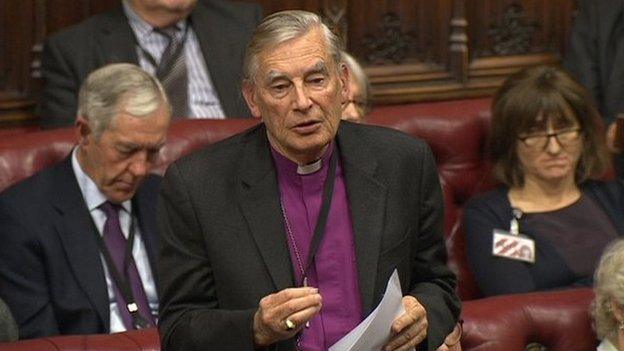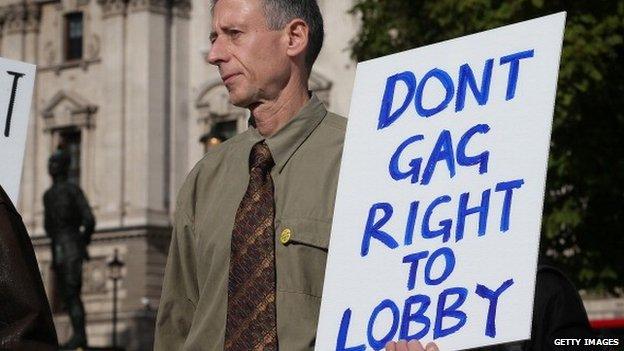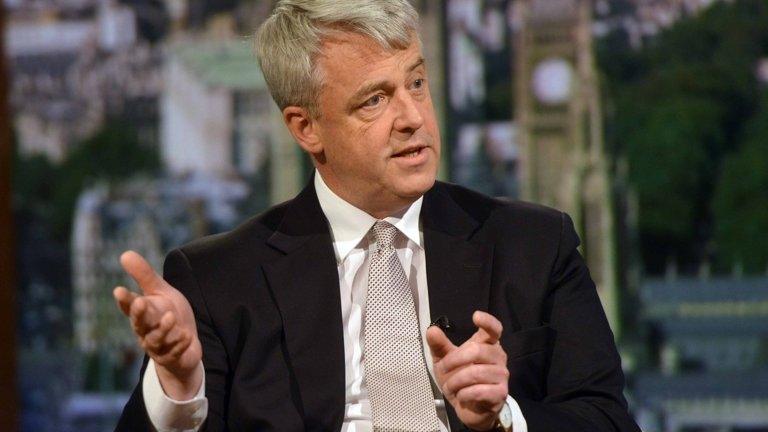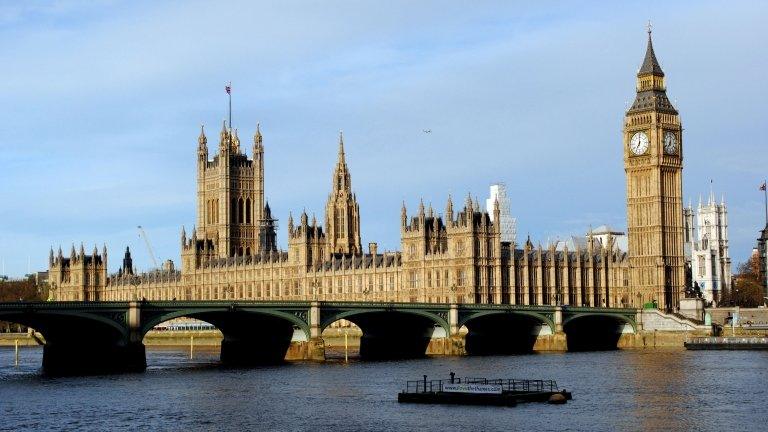Charities 'frightened' to campaign by lobbying law - ex-bishop
- Published

Lord Harries, a crossbench peer, criticised the spending limitations when the bill was debated in Parliament
Charities and campaign groups have been "frightened" into curtailing their public work by a new lobbying law, ex-Bishop of Oxford Lord Harries has said.
A report by a commission he chairs said there had been a "chilling effect" on organisations who feared breaking the new law.
He told the BBC he expected some campaigners to face legal challenges.
The Lobbying Act tightened regulation on campaign spending during election periods.
The BBC has been told the Catholic Church in England and Wales consulted lawyers before writing to congregations because of concerns about the new law.
Crossbench peer Lord Harries of Pentregarth told BBC Radio 4's World at One: "We've had clear evidence that a number of campaigning groups have already decided not to campaign or not to join with other bodies to campaign on an issue because they are frightened of running foul of the act."
The report from the Commission on Civil Society and Democratic Engagement - shared with the World at One - found that more than half of the organisations it surveyed said compliance with the Lobbying Act made their work more difficult even before the election period began.
It is due to be published later this week.
'Legal complaints'
Under the new rules, non-party political campaigners must comply with lower spending limits than existed at previous elections, from last September to polling day.
More activities - such as public events, market research and press conferences - have also been brought under the scope of the act.
Charities and campaign groups' work counts towards the spending total if it can be seen as intended to influence voters, and is aimed at the public.
Organisations can be fined organisations up to £20,000 for breaching the rules, by elections watchdog the Electoral Commission.

Demonstrators protested outside Parliament against the new lobbying laws
One anonymous organisation told the Electoral Commission it feared politicians would use the act to complain about its activities to harm it financially.
Lord Harries, a crossbench peer, said: "I would be very surprised if at the end of this election there weren't a number of legal cases where complaints had been brought against campaigning groups."
A Cabinet Office spokesman said the government had, on the recommendation of the watchdog, amended its plans when the bill was going through Parliament, in response to concerns.
Registration
Two major religious groups - the Quakers and the Salvation Army - are to formally register with the Electoral Commission in a bid to comply with the rules.
Both the Church of England and the Catholic Church in England and Wales have sought legal advice and decided not to register.
The Catholic Church took advice before sending a letter to congregations that will urge them to question candidates about their policies, but will not tell them which politicians to support.
Charities have complained the new rules are unclear and tie them up in red tape.
The Commission was formed by groups that, like Lord Harries, opposed the new lobbying rules.
He rejected the suggestion it amounted to a left wing coalition - pointing out it had the support of pro-hunting group The Countryside Alliance.
'Escape criticism'
Jessica Metheringam, from the Quakers, said the law was never intended to include church groups - and misunderstood them.
She said individual churches were concerned about holding individual events on nuclear weapons and food banks.
"It makes an assumption we have a large database of Quaker supports, we push a button and they do something political - that's not how a church works," she said.
The Quakers - which opposes nuclear weapons and the replacement of Trident - has had to divert resources to monitoring and logging their own activities, she added.
Friends of the Earth's Liz Hutchins said: "It's hard to escape the conclusion the government wants to escape criticism of unpopular policies before the elections."
The Cabinet Office spokesman said: "We want to make the political system more accountable and prevent a situation where opaque and unaccountable groups spend large sums of money attempting to influence the political system."
The Electoral Commission said it had consulted with campaigners and produced guidance.
"Where a significant amount of money is being spent on campaigning, it's right that voters can see who is spending that money and what outcome they are campaigning for," a spokesman said.
- Published9 January 2014
.jpg)
- Published6 September 2013

- Published23 August 2013
